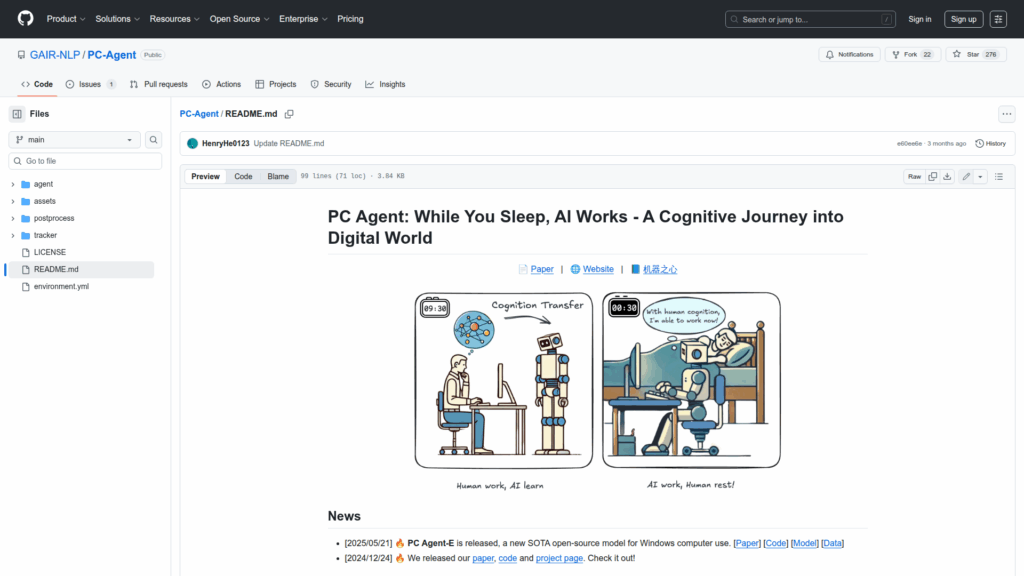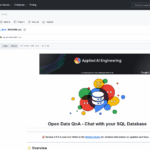PC-Agent
Basic Information
PC Agent is a research and developer-focused framework designed to create autonomous digital agents by transferring human cognitive patterns into agent behavior. The repository bundles tools and reference code to collect large-scale human-computer interaction traces, transform raw interaction logs into structured cognitive trajectories, and run a multi-agent system that separates planning from visual grounding. It targets researchers and engineers who want to study or build agents that can autonomously control a Windows PC to complete complex multi-step tasks. The project includes a data collection client called PC Tracker, post-processing pipelines to refine and complete cognition signals, and a reference agent implementation with deployment scripts. The README also points to a paper, demo materials, and a released companion model, and documents environment setup steps and required API credentials for certain post-processing stages.








